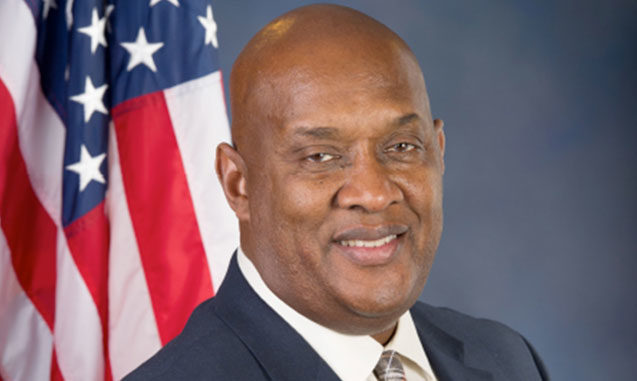
Congressman Dwight Evans
What do countries, states and neighborhoods have in common? People. They all compete for people.
Through people, you get innovators, investors, builders, developers, thinkers. Through people, you have the building blocks of your workforce.
Our neighborhoods rely on anchors like great schools, bustling shops and small businesses, and a competitive housing stock in order to attract homebuyers and increase long-term homeownership.
In my District, the Second District of Pennsylvania, I am fortunate to represent top of the line research institutions such as the University of Pennsylvania, Drexel, Temple, Saint Joseph’s, LaSalle and many more, that continue to lead the way in innovation and development, and drive new residents to our neighborhoods across the city of Philadelphia and into the surrounding suburbs like Lower Merion and Narberth, that call the 2nd District home.
Throughout the course of my over three-and-a-half decades of public service, I have always looked for thoughtful ways to “Make Ideas Matter,” always strategically searching for that moment when an idea becomes a part of our public policy.
In Congress, I am trying to put a spotlight and raise the dialogue on “Middle Neighborhoods” nationwide.
In Congress, I am trying to put a spotlight and raise the dialogue on “Middle Neighborhoods” nationwide.
“Middle Neighborhoods” are caught between growing and declining neighborhoods. They are neighborhoods that are doing “good enough” right now, but are threatened by decline, as the demand to live in these neighborhoods is weakening.
Middle Neighborhoods walk a tightrope. They are solid neighborhoods that are being squeezed, because they aren’t poor enough or wealthy enough. We need to show these neighborhoods a little love before it’s too late and they tip towards decline.
Right now, our Middle Neighborhoods have no clear lane in our federal policy. To add to this, President Trump and his administration have done little to reinvest in cities nationwide.
Last summer when speaking to the African American community at a rally in Philadelphia, President Trump said, “What the hell do you have to lose?”
This March, members of the Executive Committee of the Congressional Black Caucus (CBC) met with President Trump at the White House to discuss the key issues plaguing the African American community.
This March, members of the Executive Committee of the Congressional Black Caucus (CBC) met with President Trump at the White House to discuss the key issues plaguing the African American community.
During the meeting, the CBC Executive Committee delivered a CBC-authored, 130-page policy document titled “We Have A Lot To Lose: Solutions to Advance Black Families in the 21st Century,” which includes detailed African-American history, CBC history, 21st century policy solutions for African-American families, and also highlights, three of my key priorities in Congress: “Middle Neighborhoods,” “School Rehabilitation” and “Food Insecurity” as key action items for the policy agenda of the CBC.
It’s long overdue for the federal government to come together and stand united to make modernization, development and investment in our neighborhoods a top priority for cities, suburbs and towns nationwide.
We take pride in our neighborhoods. We are proud of the block we live on. We have come to call our neighbors our friends. It’s on us to give our neighborhoods the tools they need in their toolbox.
Healthy, strong neighborhoods lead to bustling, vibrant economies.
Recommended For You.

New Orleans Agenda
Council President Helena Moreno took a day trip to Los Angeles to honor and recognize the success


Be the first to comment